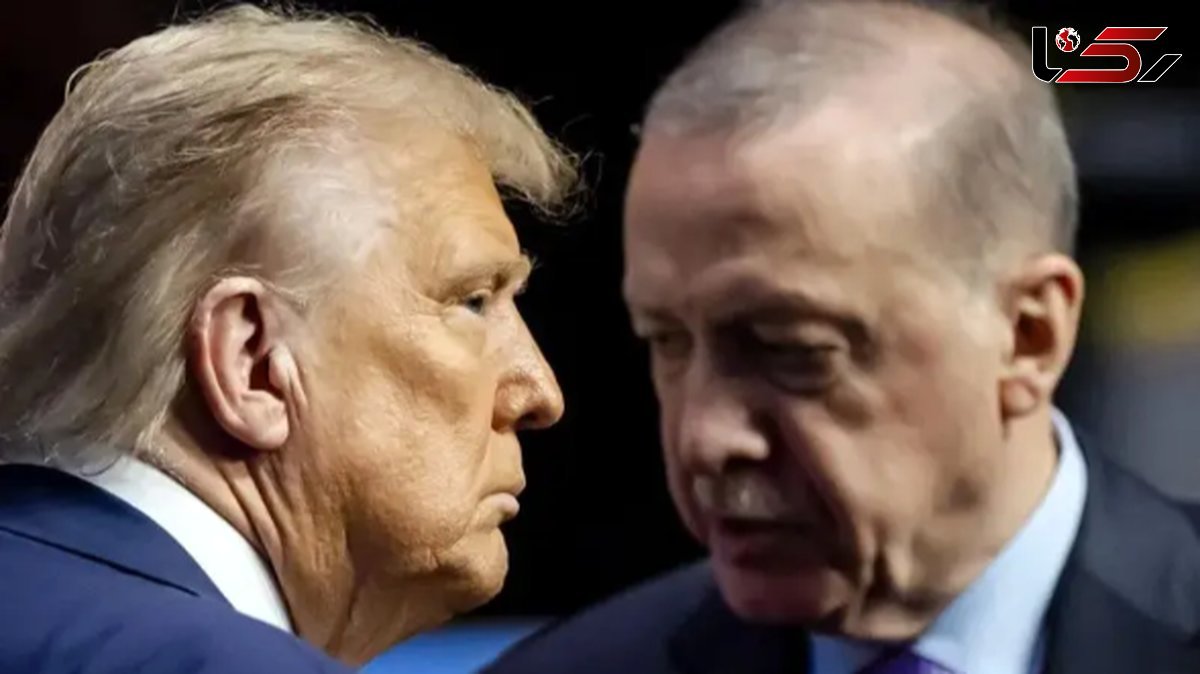U.S. Strategy in the South Caucasus: Zangezur in Focus
America's New Map for the Caucasus: Examining the Hidden Objectives
Rokna Political Desk: The new U.S. plan for the Caucasus; by mediating a peace agreement between Azerbaijan and Armenia and promoting the Zangezur Corridor, Washington has expanded its influence in the region and strengthened the strategic energy route between Asia and Europe.

Samir Al-Araki, journalist and senior Turkey affairs analyst at Al Jazeera
According to Rokna, citing Al Jazeera Net, a few months ago, discussions about the possible creation of the “Aras Corridor” to connect Azerbaijan to Nakhchivan through Iranian territory had intensified. Suddenly, like an unexpected move on a chessboard, the United States managed to completely turn the tables. This shift in balance was achieved through a series of coordinated actions and ultimately led to a meeting between Azerbaijani President Ilham Aliyev and Armenian Prime Minister Nikol Pashinyan at the White House, where both parties, in the presence of U.S. President Donald Trump, signed a peace agreement.
Baku and Yerevan had previously, at the end of 2023, officially announced their intention to “normalize relations and conclude a peace agreement based on the principles of respect for sovereignty and territorial integrity.”
What gained real significance was not the signing of the peace agreement itself, but Donald Trump’s declaration. He explicitly stated: “The United States has reached an agreement with Armenia that could last up to 99 years, aimed at developing the Zangezur Corridor,” a route connecting Azerbaijan through Armenia to Turkey and the Nakhchivan Autonomous Republic. Trump emphasized: “While Azerbaijan will continue to respect Armenia’s sovereignty, full access to Nakhchivan will be guaranteed.”
This strategic rearrangement by Washington in the South Caucasus raised many questions: What is the relation of the sudden U.S. intervention to the formation of a new global order? How will Russia and Iran, the other key players in this arena, react? And ultimately, to what extent will Turkey’s interests, which have long viewed the South Caucasus as its geopolitical depth, be affected by this shift?
Does the dissolution of the Minsk Group mean Russia’s complete removal from the Caucasus equation?
The Eurasian region, with its geographical expanse and political weight, is considered one of the most sensitive areas in the world from a geopolitical perspective. Zbigniew Brzezinski, former U.S. National Security Advisor, described it as the “heart of the world” and “the center of emerging global power.” Washington is well aware that any power controlling this region can impose its dominance model—whether in a unipolar or multipolar world—on global affairs.
Currently, the United States seeks to solidify its foothold in Eurasia and shift the balance of power. To this end, Washington decided to utilize the peace agreement between Azerbaijan and Armenia to bring the Zangezur Corridor under its direct control, a route now emerging as a new avenue for U.S. power projection in the South Caucasus.
The general lines of the new U.S. strategy were outlined by Tom Barrett, U.S. Ambassador to Turkey, at the end of last July. His remarks, which initially received little attention, have resurfaced in prominence with the renewed peace agreement. Barrett described the framework of America’s vision as follows:
a. Resolving the Gaza issue and linking it to the real reconstruction of the region.
b. Connecting Turkey, the Gulf countries, Syria, Lebanon, Iraq, Jordan, along with Azerbaijan and Armenia, to Israel through the Abraham Accords.
c. Emphasizing that the region extending from the Indian Ocean in the south to the Caucasus in the north, and from the Mediterranean in the west to Central Asia in the east, will become one of the most powerful global hubs.
At the same time, this policy clarifies the special role the U.S. envisions for Turkey in the future. Barrett stated: “Turkey should not merely be a NATO defense partner, but also a regional partner. Given Turkey’s defense and industrial capabilities, it should serve as the axis of this security framework alongside the United States—not only for the western region but for the entire region extending eastward.”
In reality, these measures are part of a comprehensive strategic package aimed at encircling Russia, Washington’s regional rival; a direct and prominent presence in the South Caucasus increases Moscow’s geopolitical challenges. Especially as access routes to Russia’s warm-water ports in the west have gradually come under the influence or control of U.S.-allied countries: from the Black Sea and Baltic Sea to the White Sea in the north. In this context, direct U.S. presence in the sensitive Zangezur passage represents a new step in encircling Russia.
U.S. involvement in Zangezur will undoubtedly not remain a mere “company” for managing and operating this strategic passage; over time, it will acquire broader geopolitical and security dimensions. Redrawing regional maps based on Washington’s strategy will not only disadvantage Russia.
The new agreement also signals the end of the Minsk Group, established in 1992 by the Organization for Security and Cooperation in Europe to resolve the Azerbaijan-Armenia conflict, co-chaired by the U.S., Russia, and France.
Why the Aras Corridor Could Not Replace Zangezur?
Russia has always considered itself the main decision-making power in this region, which until three decades ago was part of the Soviet Union. Moscow maintained deep historical and security ties with Armenia, while also signing significant agreements with Azerbaijan. Furthermore, the Kremlin was one of the three co-chairs of the Minsk Group. Nevertheless, Russia’s approach to the Karabakh crisis over decades was largely passive, perhaps due to Armenia’s military successes in the 1990s, which allowed it to control the Nagorno-Karabakh region.
However, following Azerbaijan’s victories in the 2020 and 2023 wars, Russia failed to update its policies. While the Kremlin could have played an active role in facilitating a final and sustainable peace agreement between Baku and Yerevan and proposing an acceptable mechanism for Zangezur, the situation gradually slipped out of its control.
The Ukraine war and the considerations of certain regional countries enabled the United States to suddenly step into the heart of Russia’s “backyard” and accomplish what Moscow had not. Now, even Russia’s future role after the White House agreement remains uncertain, whereas according to the 2020 ceasefire, Russian federal security forces were to monitor and control the passage.
Currently, options are highly limited: Moscow shows signs of flexibility, while Tehran has adopted a stricter stance.
Zangezur Corridor: A Turning Point in Turkey’s Foreign Policy in the Caucasus?
Turkey openly and actively engaged in the Caucasus crisis, providing unconditional military and political support to Azerbaijan to secure Baku’s victories and restore control over Karabakh. Since then, Ankara has sought to exploit this achievement strategically, with the reopening of the Zangezur Corridor being central. It is therefore likely that Turkey played a key role in facilitating the White House agreement.
Within this framework, President Recep Tayyip Erdoğan hosted Armenian Prime Minister Nikol Pashinyan in Ankara last June; a meeting clearly focused on peace and regional stability, reflecting efforts to pave the way for a new regional order. Following the agreement, Erdoğan congratulated the leaders of Azerbaijan and Armenia. Meanwhile, Turkish Foreign Minister Hakan Fidan emphasized that reopening the Zangezur Corridor would reconnect Turkey to Turkic countries in Central Asia.
Accordingly, Turkey’s achievements can be summarized in two main areas: first, strategic exploitation of connecting Turkish territory to Azerbaijan and the wider network of Turkic countries; second, strengthening its strategic capabilities.
The second dimension of Turkey’s gains extends beyond the Caucasus and could influence other regional matters. One of the most important is coordination with the United States in sensitive regional areas, particularly northeastern Syria, and ending the presence of the Syrian Democratic Forces, which have played a decisive role in regional security and politics for years. Another dimension is the direct economic benefit for Turkey from the Zangezur Corridor. This route solidifies Ankara’s position as a crucial transit point for trade and energy from China and Central Asia to Europe, bringing substantial economic advantage.

Send Comments